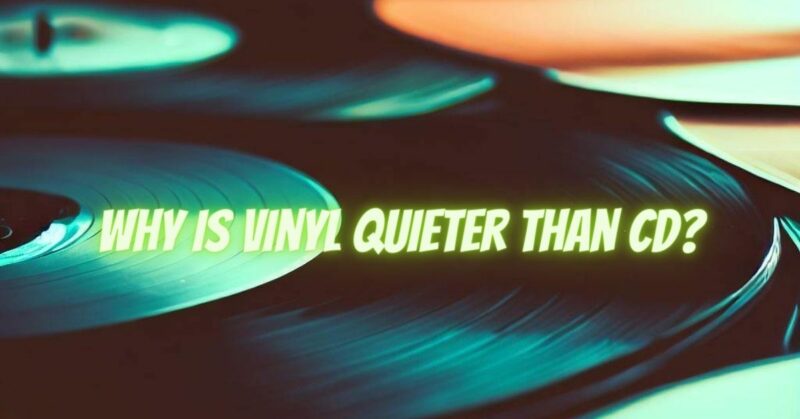One of the intriguing aspects of vinyl records is their inherently quieter playback compared to CDs. In this article, we uncover the factors that contribute to the perceived lower volume levels of vinyl records and explore why they sound quieter than CDs.
- Analog Nature and Signal-to-Noise Ratio:
Vinyl records are analog in nature, meaning that the sound is stored as physical grooves on the record surface. During playback, the stylus tracks these grooves, translating them into electrical signals. However, this analog process introduces inherent noise, including surface noise, clicks, and pops, which can lower the overall signal-to-noise ratio. As a result, the quieter passages of music on vinyl records may be less pronounced compared to the louder parts.
- Dynamic Range Compression:
Vinyl records have a narrower dynamic range compared to CDs. Dynamic range refers to the difference between the softest and loudest sounds in a recording. Vinyl records often require dynamic range compression during the mastering process to prevent the needle from jumping out of the grooves during playback. This compression reduces the overall dynamic range, making the softer passages less audible and contributing to the perception of quieter playback.
- Recording and Mastering Techniques:
The recording and mastering techniques used for vinyl and CD releases can also contribute to the perceived difference in volume levels. Vinyl mastering engineers consider the limitations of the format, making adjustments to optimize the sound for vinyl playback. These adjustments may include reducing low-frequency content or adjusting the overall tonal balance. CDs, on the other hand, can benefit from the extended frequency response and dynamic range offered by the digital format, resulting in potentially louder playback.
- Playback Equipment and Gain Settings:
The choice of playback equipment and gain settings can also impact the perceived volume levels between vinyl and CDs. Some turntables or phono preamps may have lower gain settings, requiring the amplifier or receiver to be turned up higher to achieve a comfortable listening level. This can contribute to the perception of vinyl sounding quieter. In contrast, CDs can be played back at a consistent level across different systems, as the digital audio format provides a standardized output.
- Listener Expectations and Perception:
Listener expectations and individual perception play a crucial role in the perception of sound levels. Vinyl enthusiasts often appreciate the unique qualities of vinyl playback, including the warmth and character it imparts to the music. The quieter playback on vinyl can be seen as a trade-off for the distinct sonic experience it offers. In contrast, the perceived loudness of CDs may be more aligned with what listeners expect from digital audio.
Conclusion:
The perceived lower volume levels of vinyl records compared to CDs can be attributed to a combination of factors, including the analog nature of vinyl, the narrower dynamic range, dynamic range compression, recording and mastering techniques, and individual perception. While vinyl records may sound quieter, they offer a unique and immersive listening experience appreciated by many audiophiles. The choice between vinyl and CDs ultimately comes down to personal preference, as each format has its own sonic characteristics and appeals to different types of listeners.


